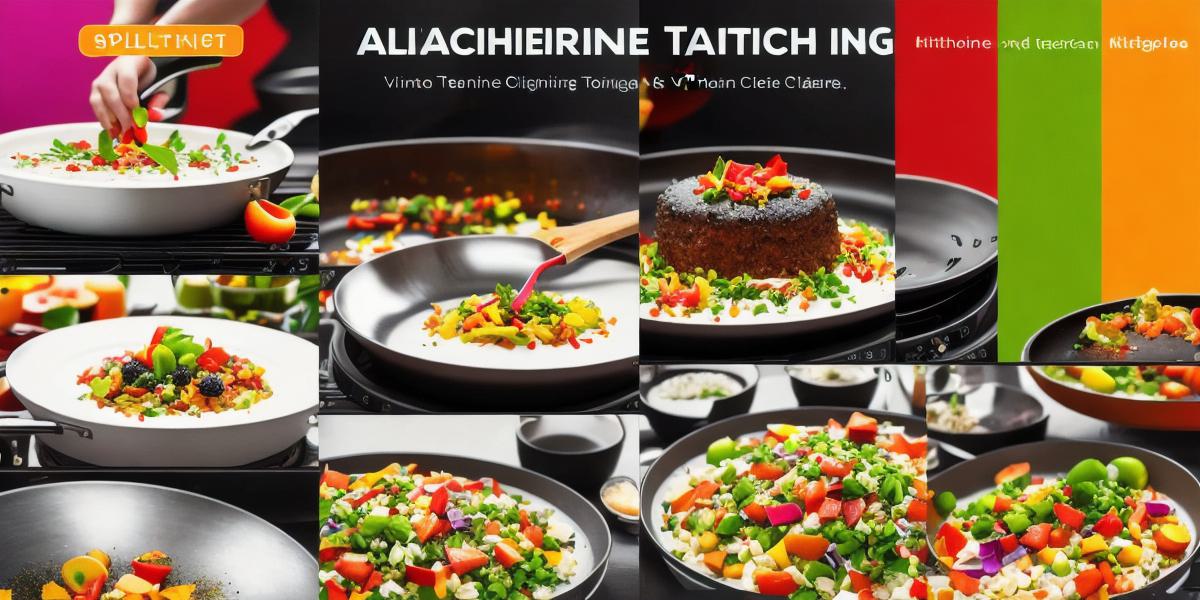Virtual team building has become an essential part of remote work, especially as more and more companies adopt a distributed work model. However, it can be challenging to create meaningful connections between team members when they are not in the same physical space. That’s where virtual cooking classes come in. In this article, we will explore how virtual cooking classes can help you spice up your team bonding efforts and improve communication, collaboration, and productivity among remote teams.
Virtual Cooking Classes: A Fun Way to Build Team Cohesion
One of the best ways to bring a group of people together is through shared experiences, and virtual cooking classes offer an engaging and interactive way to do just that. By participating in a virtual cooking class, team members can learn new skills, try new foods, and have fun together. This is a great way to build camaraderie and create lasting memories among remote teams.
Virtual cooking classes are typically led by professional chefs who guide participants through the preparation of a meal or dish. Participants can cook along from their own kitchens, following the chef’s instructions via video conferencing software. This creates an immersive experience that allows team members to feel connected, even though they are not physically in the same room.
The Benefits of Virtual Cooking Classes for Team Bonding
Virtual cooking classes can offer a range of benefits for remote teams, including:
- Improved communication and collaboration: Virtual cooking classes require team members to communicate clearly with each other and work together to achieve a common goal. This helps to improve communication and collaboration among team members, even when they are not in the same physical space.
- Enhanced creativity and problem-solving skills: Cooking requires creativity and problem-solving skills, which can be beneficial for remote teams who may need to think outside the box to overcome challenges.
- Increased productivity and engagement: Virtual cooking classes can be a fun and engaging way to boost productivity and engagement among team members. When people are having fun, they are more likely to be productive and motivated to work together.
- Better retention and engagement: Virtual cooking classes can help remote teams feel more connected and engaged with each other, which can lead to better retention rates and increased job satisfaction.
Real-Life Examples of Virtual Cooking Classes in Action
Many companies have successfully used virtual cooking classes as a way to build team bonding and improve communication and collaboration among remote teams. Here are a few real-life examples:
- Zoom Video Communications: In 2020, Zoom Video Communications hosted a series of virtual cooking classes for their employees. These classes were led by professional chefs and allowed participants to cook along from their own kitchens. The classes were a huge success and helped to boost morale and engagement among Zoom’s remote teams.
- GitHub: In 2019, GitHub hosted a virtual cooking class for their employees. The class was led by a professional chef and allowed participants to cook along from their own kitchens. The class was a huge hit and helped to build camaraderie among GitHub’s remote teams.
- Buffer: In 2018, Buffer hosted a virtual cooking class for their employees. The class was led by a professional chef and allowed participants to cook along from their own kitchens. The class was such a success that Buffer decided to make it an annual event.
Summary
Virtual cooking classes are a fun and engaging way to spice up your team bonding efforts and improve communication, collaboration, and productivity among remote teams. By participating in a virtual cooking class, team members can learn new skills, try new foods, and have fun together. Whether you’re looking to boost morale, improve engagement, or simply have some fun with your remote team, virtual cooking classes are a great way to achieve all of these goals. So why not give them a try today?
FAQs
- How often should we host virtual cooking
